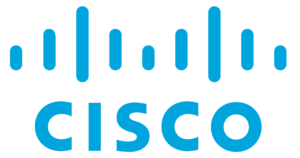Transportation Company Thwarts Ransomware Attack by Locking Down Code Execution
CyberArk Code Sign Manager helps firm streamline key management, improve visibility, and secure script execution—at enterprise scale

Back to Top
Summary
A transportation company was hit by ransomware that infected internal virtual servers and halted operations. Rather than comply with the attacker’s demands, the company shut down affected systems and restored from backups—then moved quickly to harden its defenses. By deploying certificate-based enforcement with CyberArk Code Sign Manager, the company secured internal scripts and macros to prevent future attacks and regain control over its code execution environment.
Company profile
This leading transportation and logistics company delivers mission-critical services across global supply chains and operates under strict uptime and security requirements. With an extensive internal software footprint—including logistics platforms, automation tools, and macros used by employees and partners—the company places a premium on secure and reliable code execution.
Challenge
After a ransomware attack brought operations to a standstill, a leading transportation company faced a wake-up call. Although InfoSec wasn’t sure how the servers had been compromised, they did know that a phishing email with an attached malicious Microsoft Office file had been received not long before the ransomware attack took place.
The company’s CISO explained, “Employees are required every year to take cybersecurity training, and we also send them fake phishing emails to test them and keep them on their toes. But it only takes one distracted or careless employee to let malware in.”
The company was already in the process of evaluating code signing security solutions to protect their internally built logistics software used with their partners and customers. They wanted to avoid software supply chain compromises like those seen in the highly publicized SUNBURST attacks that had impacted some of their customers.
The director of public key infrastructure (PKI) services mentioned his frustration with the company’s struggles with phishing—and his suspicion that some connection existed between the malicious payload and internal scripts. One of the solution architects asked if the company knew that internal macros and scripts could be code signed—and that any macro that wasn’t signed could be prevented from executing with the proper security controls in place.
Solutions
To manage and protect their macros and scripts, the company used CyberArk Code Sign Manager to automate security controls that detect, disable, and remove all unsigned macros. They also integrated Code Sign Manager seamlessly with users’ preferred toolsets, whether they were developers writing apps using DevOps methodologies or IT members writing PowerShell scripts.
Even better, Code Sign Manager automated everything having to do with signing code, including managing the lifecycle of certificates and enforcing security policy. Once the company saw the product in action, their only remaining question was how quickly Code Sign Manager could scale to manage the security of their internal code. Code Sign Manager quickly proved it could deliver.
Results
Using Code Sign Manager, the company’s InfoSec team could now define code signing policy configurations that aligned with corporate security policies. These policies could be configured using important parameters, such as:
- Restricting issuance of code signing certificates only to approved certificate authorities (CAs).
- Setting minimum encryption strength of private code signing keys.
- Specifying the management approvals required before a code signing key could be used.
Code Sign Manager enabled the company to set up multiple configurations uniquely tailored for each functional area of the organization. Because Code Sign Manager automatically manages code signing certificate lifecycles—including issuance and renewal—it ensured the right keys and certificates were available to authorized end users based on each use case.
Once initial policies were finalized, the company’s IT department configured employees’ computers and Microsoft Office suites to require that all shell scripts and macros be signed with a company-authorized code signing certificate before they could execute.
“No more complexity. No more overhead. My team can now support thousands of employees without worrying about their expertise or skill level,” said the director of PKI services. “This level of simplicity is essential to ensure widespread adoption across our enterprise—the only way code signing serves as an effective means to help stop future ransomware attacks.”
Beyond reducing the risk of third-party scripts and macros spreading malware, Code Sign Manager gave the InfoSec team visibility into every code signing operation across the enterprise—regardless of what was being signed or which tools were used. This single-pane-of-glass view supplied a historical record and an irrefutable audit trail of all code signing activities.
“Code Sign Manager has enabled us to secure all our code regardless of the type. It’s not only easy to use, but it also keeps us safe.
– CISO, Transportation Company
Key benefits
- Simplicity: Reduced complexity for employees and IT teams by automating certificate enforcement and removing manual key handling.
- Visibility: Delivered real-time insight into all code signing operations across the enterprise for stronger audit readiness.
- Security: Prevented execution of unsigned or unauthorized scripts and macros, minimizing ransomware risk and supply chain exposure.
Products and services
Solutions
Related customer stories
Talk to an expert
Understand the key components of an Identity Security strategy
Get a first-hand look at CyberArk solutions
Identify next steps in your Identity Security journey


